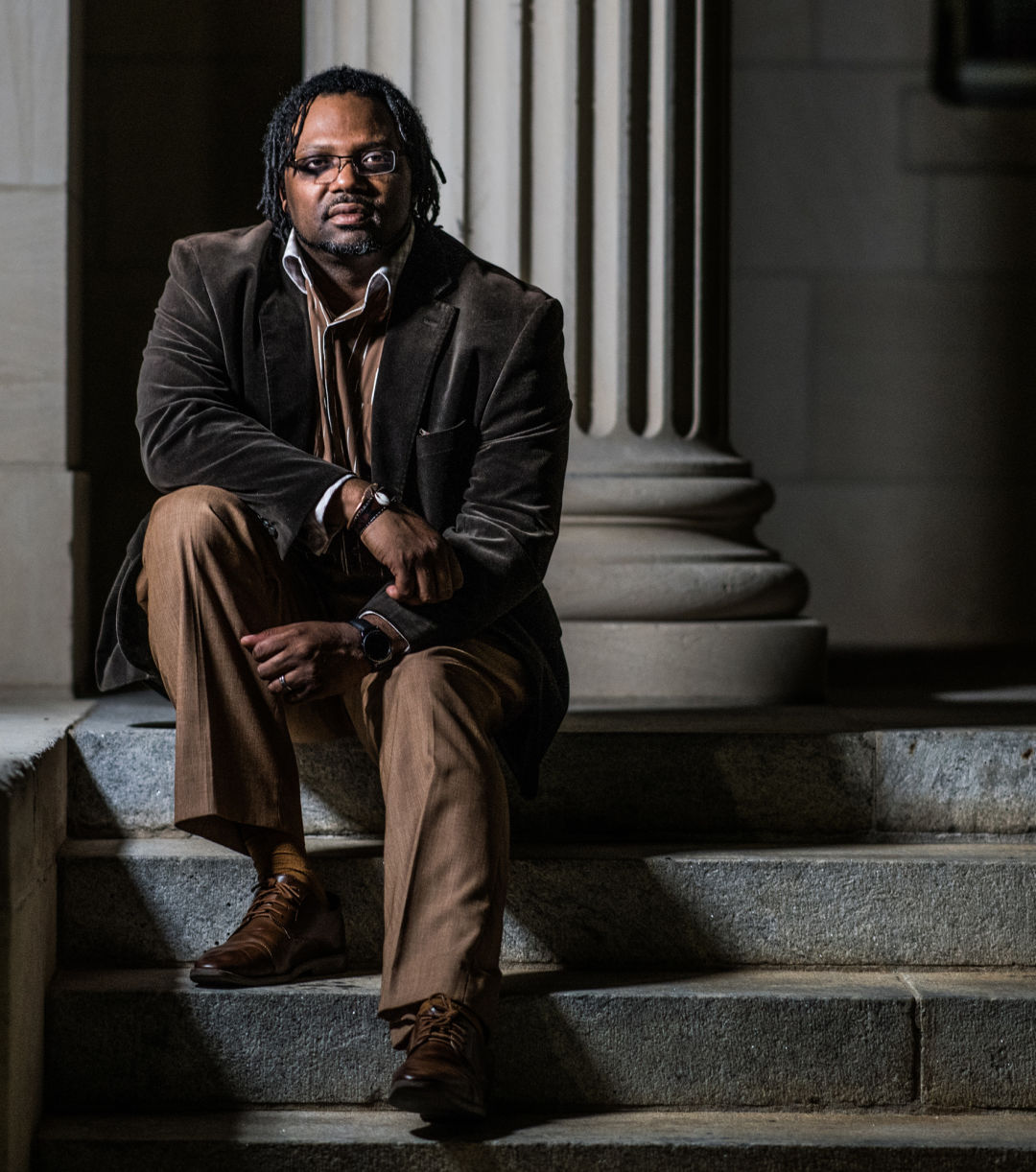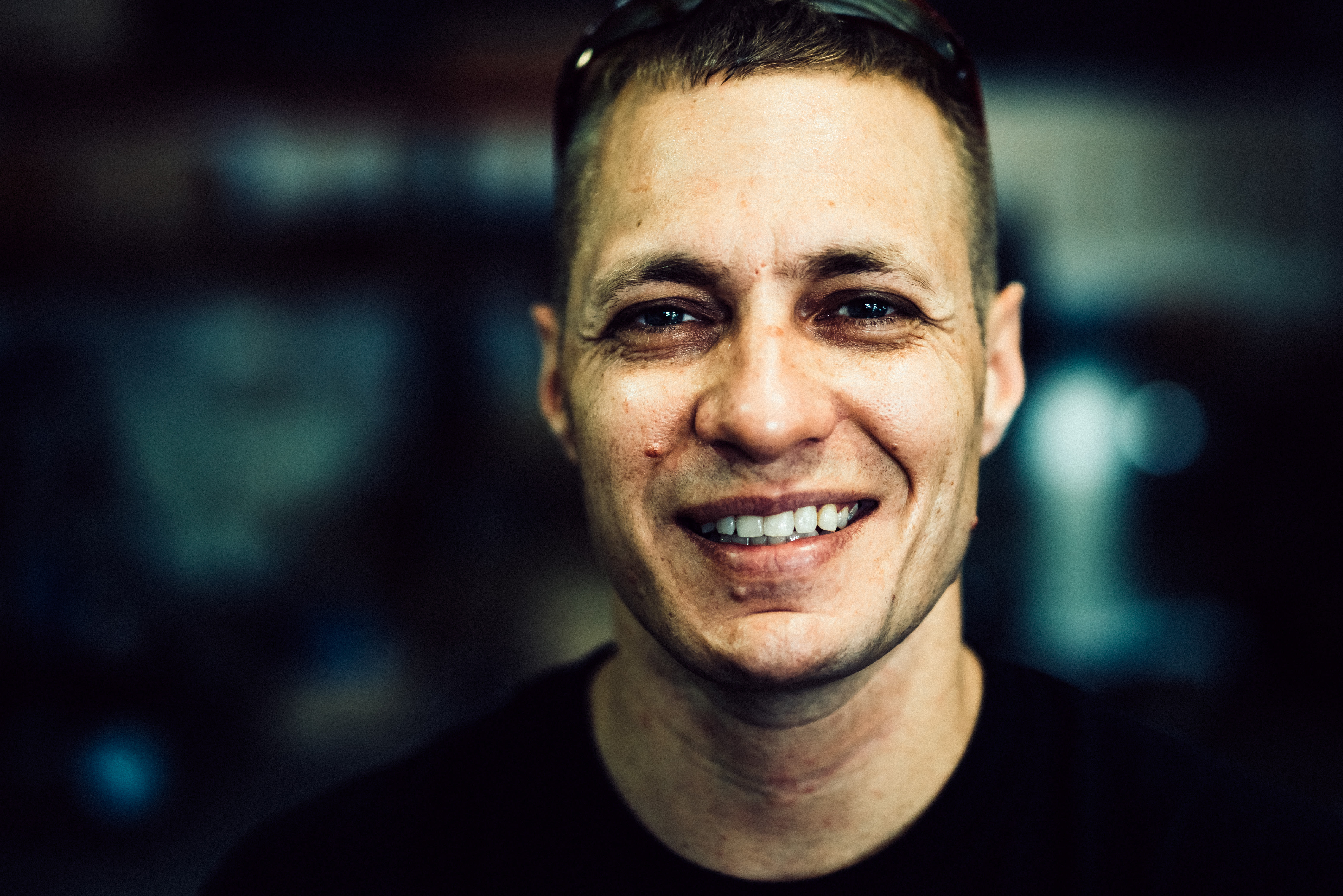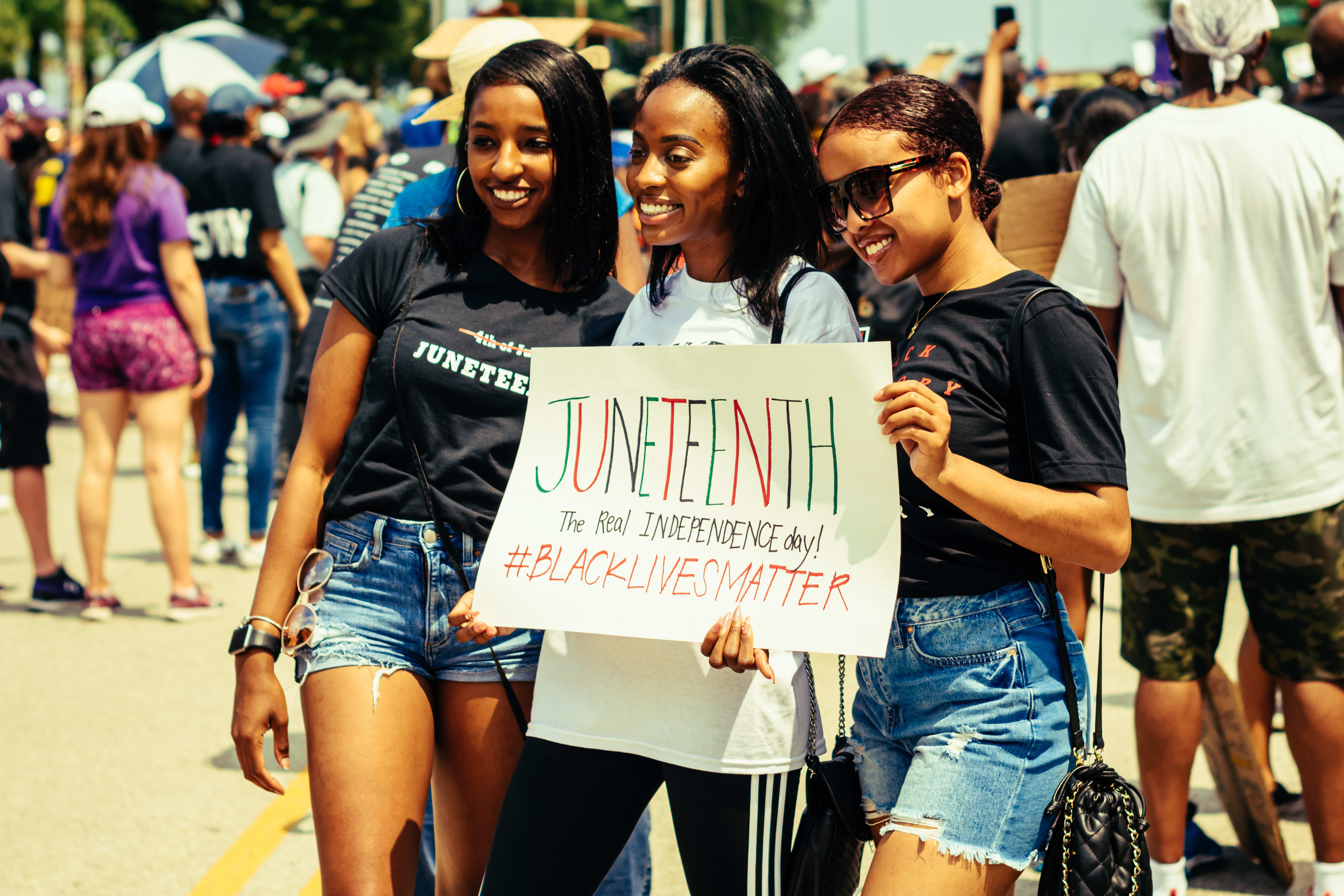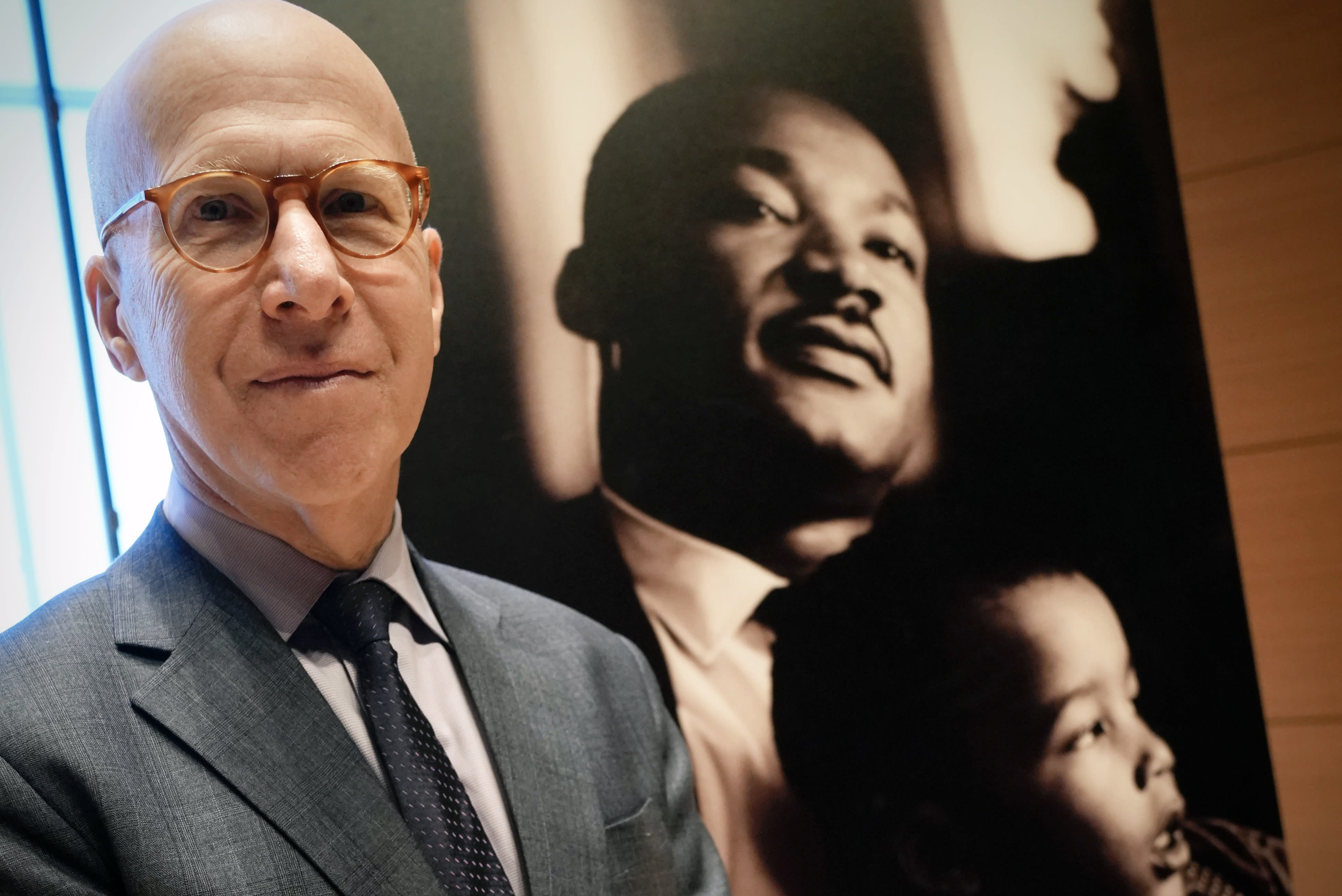Should Former Felons Have the Right to Vote?

Demetrius Jifunza, founder of the Sarasota chapter of the Florida Rights Restoration Coalition
Image: Everett Dennison
Shortly after his 18th birthday, Demetrius Jifunza—then named Demetrius Smart—was arrested for armed robbery. He was living in Polk County, and says he got behind the wheel of a car with friends who hadn’t told him they were planning to commit a crime. “Since I was there, I take responsibility for it,” he says. Between 1996 and 1999, he spent almost three years in prison and in 2003, served eight months more after violating his probation.
After that, he moved to Sarasota, became a pastor for churches in Arcadia and Polk County, launched a career as a paralegal and serves as a vice president with the Sarasota chapter of the NAACP. Now 40, he’s married, with three children and a new Swahili last name he and his wife adopted, and is working on graduate degrees in mental health care. But because of the crime he committed in 1995, he cannot vote.
Jifunza is one of more than 6 million Americans who are barred from voting because of a felony conviction, and one of more than 1.6 million in Florida. It’s difficult to pinpoint how many Sarasota County residents are prohibited from voting because of felonies, but in the last five years alone, the supervisor of elections office has removed 1,941 voters from the rolls because of convictions. That number doesn’t account for criminals who had not yet registered to vote, or those, like Jifunza, who cannot vote because of crimes committed years earlier.
Florida residents with felony convictions must wait between five and seven years after completing their sentence before applying to have their voting rights restored, and then it’s up to the governor. Republican Gov. Rick Scott has approved far fewer applications than his predecessors—and the application process has also become more complicated. In 2009, under then-Republican Gov. Charlie Crist, 24,537 citizens had their rights restored. In 2015, under Scott, 427 had their applications approved. (A judge ruled that the current application process is unconstitutional in February.)
And because of racial disparities in arrests and sentencing, Florida disproportionately blocks minorities from the ballot box: One in five black Floridians cannot vote because of a felony conviction. That racial impact is historically intentional. Shortly after the Civil War, the Florida Legislature approved the lifetime voting ban as part of a package of measures intended to segregate the state and limit blacks’ political power.
That could change this fall, if 60 percent of Florida voters approve a constitutional amendment that would automatically restore voting rights to Florida felons, except for those convicted of murder or sexual offenses. As part of a movement spearheaded by the nonprofit Floridians for a Fair Democracy, volunteers collected more than 1.1 million petitions last year to get the measure on the ballot.
Desmond Meade, president of the Florida Rights Restoration Coalition and chair of Floridians for a Fair Democracy, says the issue is gaining currency because of the growing number of people entangled in the criminal justice system. One out of every 37 Americans is now under some type of correctional control. “With America’s failed war on drugs, almost every other family or household has someone who is directly impacted,” says Meade.
The amendment is being supported by a coalition of churches and faith groups, the America Civil Liberties Union and liberal grassroots organizations. Sarasota County Democratic Party leaders unanimously voted to endorse the amendment last year. The Republican Party of Sarasota County hasn’t taken an official stand, but chairman Joe Gruters says he supports the restoration of rights. “I believe in redemption and forgiveness,” he says. “They shouldn’t lose some of their basic rights for the rest of their lives.” Gruters, also a state legislator, co-sponsored a bill in Tallahassee this spring that would streamline the restoration process, but fell short of automatic restoration. (The bill has not moved forward since being introduced.) Some political analysts argue Democrats would benefit if the amendment passes, but Gruters disagrees. “I’m sure there are just as many Republican felons as Democrats,” he says.
“It’s not a political issue,” insists Meade. “Whenever there’s an attachment of this issue to politics, it sullies the sanctity of the issue. It’s about forgiveness, redemption and restoration. America is a country of second chances.”
Jifunza met Meade in 2016 and embraced his cause. “His passion, his dedication, it’s moving,” says Jifunza, who has applied to get his voting rights restored but says he’s received no response from the state. He helped collect petitions for the amendment and last winter launched a Sarasota chapter of the Florida Rights Restoration Coalition. He says restoring voting rights is just the first step in helping felons put their lives back together. They also need mental health treatment, housing and work. “If you constantly call yourself a felon like lawmakers want you to do, then you will always act and believe as a felon,” he says. “But if you know that you are a living human being, respectable, [then] you’re turning your life around.”
Listen to Jifunza talk about voting rights on the popular Pod Save America podcast here.



